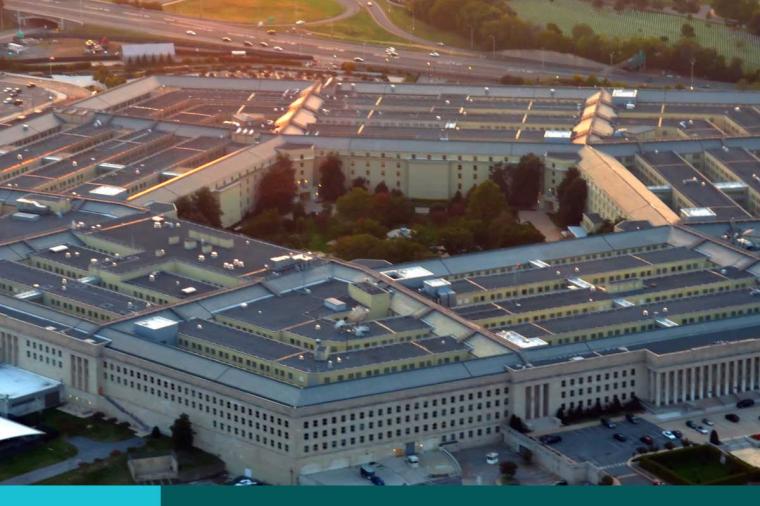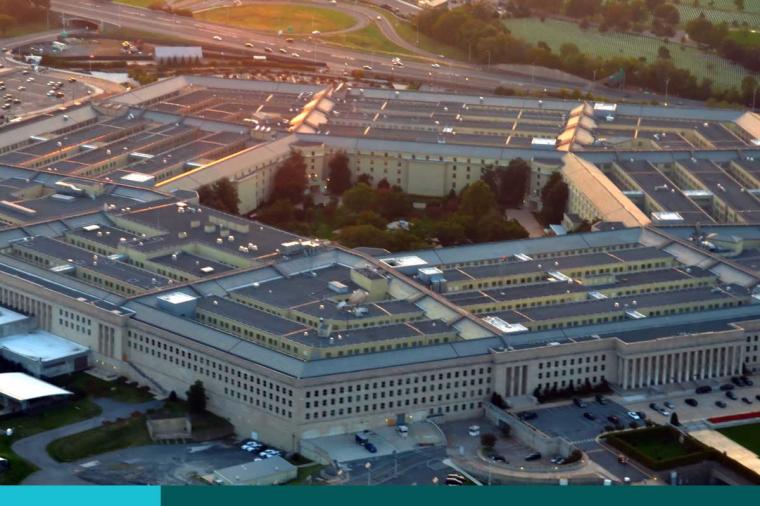
Interoperability for the Department of Defense (DoD) and Defense Health in particular speaks to the idea of information being more easily shared across systems. Technology vendors and channel partners who emphasize interoperability in the tools and solutions they sell to the DoD can find success anywhere in this vast department, from the warfighting side (for example, see our blog on Air Force interoperability) to the world of defense health. Interoperability stresses seamless communication and ease of access, and perhaps, no one across government would agree more with the term’s complex nature than the secretaries of the Defense Health Agency (DHA) and the Veterans Administration (VA). Since the release of the National Defense Authorization Act in FY2014, calling for the standardization of shared information between the DoD and the VA, these agencies have been busy establishing interoperability for their electronic health records (EHR). This ongoing effort requires an overhaul of their respective health systems’ infrastructure, security and practices. We’ll examine some keyways industry can better support DoD’s efforts at interoperability in defense health.
DHA Scope of Care
The defense health system supports a host of military members, including 16M enrollees and 27M+ beneficiaries, across the DoD, VA and Coast Guard communities. Currently, their healthcare needs are being addressed by nearly half a million professionals among 2600+ locations throughout the U.S. including ships and submarines. With frequent changes in its service members’ assignments and relocation, it is critical for the military health system to develop a cohesive system of health records for enrollees, their beneficiaries, and retirees. The records system must account for the patients of the DoD/VA and their beneficiaries from the time they enter military service until they discharge or become veterans.
DHA's current tasks and challenges
DHA leaders at this year’s annual Defense Health Information Technology Symposium (DHITS) highlighted DHA’s progress in integrating multiple data sources and collaboration with its internal and external partners, providing an opportunity for addressing the needs required of interoperability. Attempting to consolidate patient medical records as a chronological journey has been a notable task for the DHA and the VA. Overseeing the integration process, Lance Scott, director of solutions integration for the Federal Electronic Health Records Management, explained:
"You take the [patient’s] journey towards retirement, we've got treatment that is active-duty treatment at Military Treatment Facilities (MTF). We've got records that are in theater that are captured. We got an inherently transient population in the DoD that ends up in the VA that has records everywhere, out of those 120,000 providers. We've got records that are scattered literally to the farmlands at every base, the works that all culminates in at the VA…"
The DHA is consolidating medical visits across providers such as inpatient and outpatient, purchase care, the Centers for Disease Control and Prevention (CDC) for COVID and immunization data, genomic and pharmaceutical data. Another important consolidation task of the DHA includes actively updating trauma registry data to the Military Health System (MHS) Genesis for clinicians to make tactical decisions such as deployment and medical readiness in real-time. Data quality assurance adds another layer of complexity before also being integrated into the MHS Genesis where DHA analysts must discern and remove duplicated data. These efforts aim to support the DHA’s goal of enabling clinicians to spend more time making treatment decisions and less time having to sort through piles of records that the patient would have had to carry from one location to another. The DHA’s modernization activities are still ongoing, where legacy systems data are added at a rate of over 2000 data tables weekly into the MHS Genesis. Repositories that are more than 25 years old spanning 3.5 years across 25 warehouses are consolidated into its EHR system (MHS Genesis) as well.
Plans for the remaining year and beyond
The DHA still has plans to add additional data to its EHR system for the remainder of this year including VA community care partners and mapping to DoD purchase care, referrals and ratings. Further plans call for implementing a record locator service to assist it with identifying the appropriate partners to its group of alliances and providing a more focused response to clinicians looking for the right clinical records and patient support. Lance Scott said that the DHA is considering adding private mental health data, also requiring a greater level of discussion and process. It further intends to tap into the CDC for state immunization registries through standardized policies and serves as a gateway to query and report immunization status in real-time. According to Scott, this would reduce duplicate immunizations, and provide quick answers to the Military Entrance Processing Command (MEPCOM) regarding the service member’s immunization status.
To ensure completeness of medical record keeping, the DHA will continue to work with internal and external partners within the state regulations and hospital policies for secure data exchange. This data and those the DHA imported from allies and trusted sources will be reconciled and deduplicated to determine data provenance where repetitive records can be reduced to a minimum. The DHA is also looking into utilizing natural language processing not only to clean the mountain of data before integrating into the MHS Genesis but also to assist clinicians with locating pertinent medical histories for a medical condition, including possible reasons that led up to the patient’s clinical visit. Beyond these capabilities, DHA is assessing third parties’ proposed functionalities to enhance MHS Genesis and identifying factors that can indicate a patient’s unhealthy care and health scorecard.
How Industry can help
The DHA has a lot on its plate to ensure interoperability across its ecosystem of healthcare. Its wish list to integrate and modernize is imposing but presents great potential for industry partners to provide solutions. Capabilities like advanced data analytics to support data processing and tactical decision-making as well as identify factors that can promote positive health outcomes for patients and their beneficiaries are strong insertion points. Expertise in cybersecurity and networking will be essential to ensure the safety of DHA data in a contested environment. This is especially critical to the DHA’s consolidated EHR system and it would welcome innovative and robust solutions. You as an industry partner will get DHA’s undivided attention when you can assist the DHA with zero trust compliance across all aspects of MHS Genesis implementation, particularly across the seven pillars of the DoD Zero Trust architecture. Lastly, although just as important to the DHA, is the user experience (UX) of the MHS Genesis, with emphasis on industry partners to offer enhanced functionalities and feel of the MHS Genesis’s graphical user interface (GUI) and ease of navigating its EHR system. After all, what good is a great bike if it is difficult to operate?
To get more TD SYNNEX Public Sector Market Insight content, please visit our Market Intelligence microsite.
About the Author: Toan Le is a senior analyst on the TD SYNNEX Public Sector Market Insights team covering the Department of Defense and intelligence community.

















































